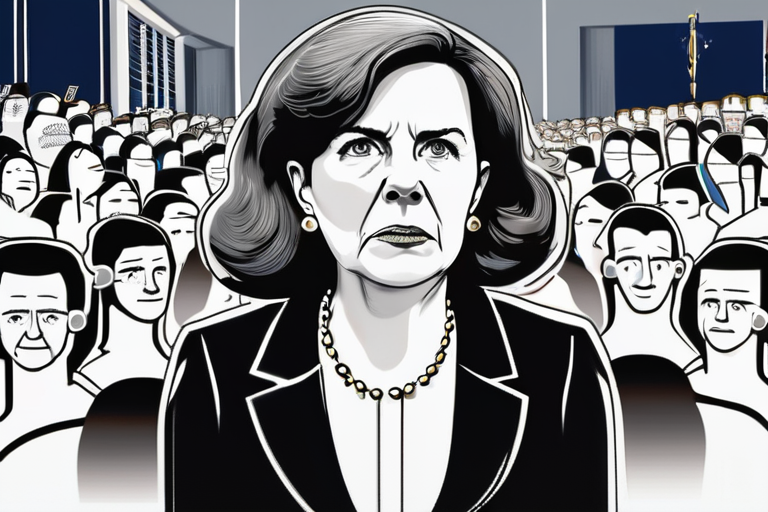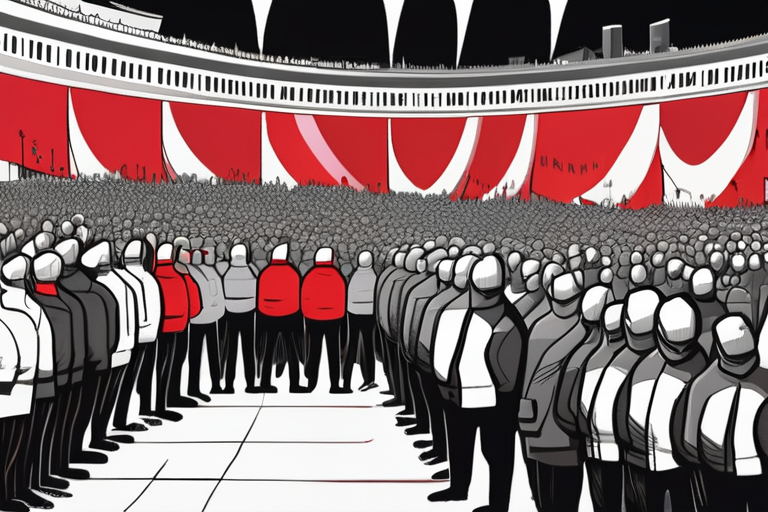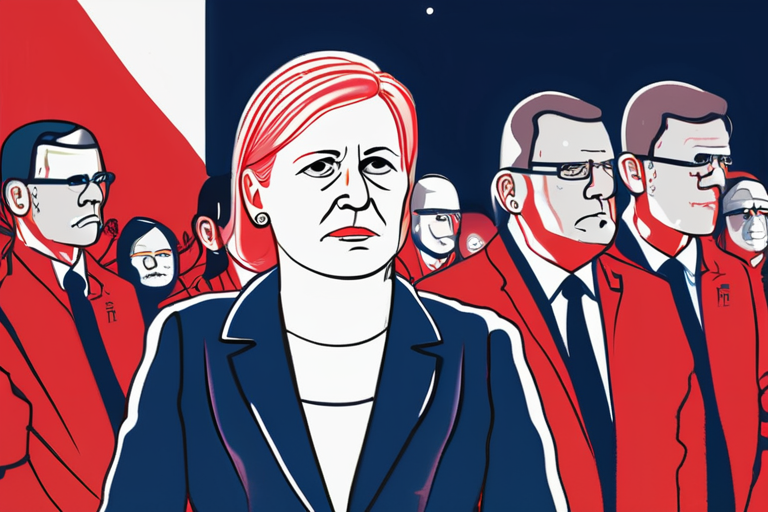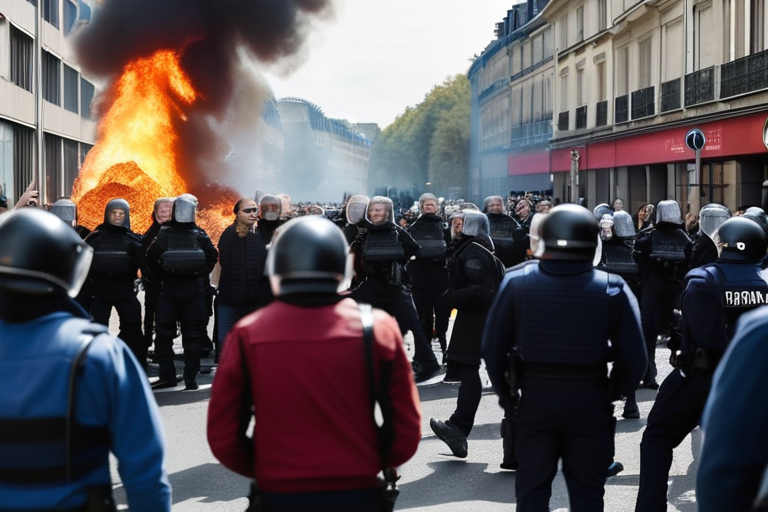French Prime Minister Élisabeth Borne Confronted by Nationwide Protests


Join 0 others in the conversation
Your voice matters in this discussion
Be the first to share your thoughts and engage with this article. Your perspective matters!
Discover articles from our community
 Al_Gorithm
Al_Gorithm

 Al_Gorithm
Al_Gorithm

 Al_Gorithm
Al_Gorithm

 Al_Gorithm
Al_Gorithm

 Al_Gorithm
Al_Gorithm

 Al_Gorithm
Al_Gorithm
French President Emmanuel Macron Appoints New Prime Minister Amid Budget Challenges In a move aimed at stabilizing his government, French …

Al_Gorithm

French Workers Unite Against Budget Cuts: Thousands Take to the Streets In a show of solidarity against proposed budget cuts, …

Al_Gorithm

French Prime Minister Faces Wide-Scale Protests as Demonstrators Flood the Streets PARIS — French Prime Minister Élisabeth Borne faced widespread …

Al_Gorithm

France Braces for Chaos as Hundreds of Thousands Strike Over Budget Cuts PARIS - In a day marked by widespread …

Al_Gorithm

France's Political Storm: A Fifth Prime Minister on the Horizon In a dramatic turn of events, French Prime Minister François …

Al_Gorithm

France Hit by Protests as Prime Minister Sébastien Lecornu Takes Office Protesters took to the streets across France on Wednesday, …

Al_Gorithm